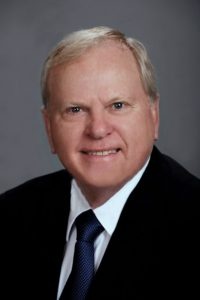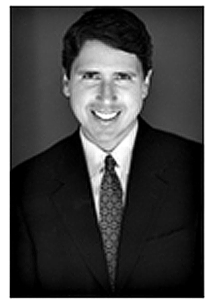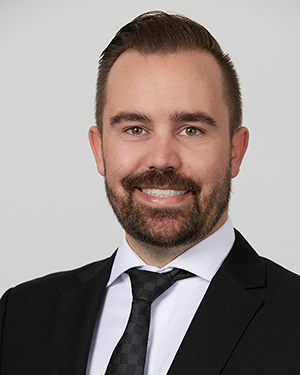
Financial Elder Abuse in America is at Crisis Proportions
by Dan J. Harkey
Summary
We have degraded our society to encourage entitlements and pursue unearned benefits and parasitic behavior, where criminal-based exploitation has little or no consequences.
Real Life Example:
In a real-life scenario, a grandson, the successor trustee of a family trust, requested a loan using his grandmother’s trust property. This raised suspicions of financial elder abuse, as the grandson intended to use the loan for personal gain rather than for the benefit of his grandmother.
article continues after advertisement
Article:
The Loan Request:
My client is a 94-year-old lady in a retirement home. Her husband has passed away. The property title is in a family trust with multiple beneficiaries, and the grandson acts as successor trustee. The estate will be settled upon Grandma’s death, and proceeds will be distributed to the numerous family beneficiaries.
The successor trustee, the grandson, wants to borrow money, using the free and clear single-family asset held in the family trust, as collateral to purchase a franchise business he intends to operate.

Borrower background:
The trust document authorizes the successor trustee (grandson) to convey title in a sale or borrow against the property as the single signer.
The free and clear property is valued at $800,000. The grandson desired to sell the property with the option of purchasing it back in 24 months for maximum cash-out to acquire a franchise business for himself as a 100% owner. His chosen method to obtain capital for his business franchise purchase was to quickly sell the property at a steep discount to get his greedy hands on the proceeds.
The ‘greedy’ grandson planned to borrow quick money and use the property as collateral while waiting for a sale and closing. He was referred to a hard money lender, a private lender typically providing short-term loans secured by real estate, for a short bridge loan. A hard money lender typically provides loans with higher interest rates and shorter terms, often used for real estate investments or in situations where traditional financing is unavailable.
The remaining family beneficiaries did not know that their future inheritance financial benefits would be misappropriated and permanently lost by one greedy relative. Like millions of others, the sociopathic grandson dwells in a self-absorbed dreamland of entitlement. I have met a few of these terrible people.
The competent lender responds.
The lender representing trust deed investors to originate this loan asked the procuring borrower’s loan broker if the elder had legal counsel to represent her interests. Would the borrower’s counsel provide a letter stating that Grandma understood this transaction’s material facts and ramifications? Would you happen to know if the transaction is an appropriate financial decision?

When asked if the elderly grandmother had legal counsel to represent her interests, the loan broker representing the grandson responded. Yes, a lawyer involved only represents the grandson. This response raised a major red flag, as it indicated potential collusion. The lawyer, who only represented the grandson, may have been willing to participate in defrauding the grandmother in the scheme to misappropriate unearned benefits away from the estate.
Any equity or proceeds from the sale of the property or loan proceeds should be reserved to pay for Grandma’s housing and continuing care.
Any prudent and knowledgeable real estate or mortgage broker representing private money trust deed investors will decline this loan request. The procuring borrower’s loan broker representing the greedy grandson will likely continue dialing for dollars to find another sucker lender dumb enough to arrange this transaction.
A procuring loan broker involved in this transaction is a bona fide scoundrel, a term used to describe a person who is genuinely and notoriously dishonest or dishonorable. The property equity has gone, the grandson takes money for personal use, other beneficiaries get screwed, and there is no money to care for grandma’s medical and living expenses. The parasitic scoundrel was waiting for Grandma to die to cover up this fraud. I call this effort ‘Felony Stupid.’
Yes, fraud, elder abuse, and negligent misrepresentation will surface when the beneficiaries left out of their rightful inheritance file a lawsuit against the grandson, mortgage brokers, the borrower’s lawyer, and investor(s) who purchased the trust deeds.
Any reasonable loan broker will run for the hills or hop on a bus, Gus, and drop off the Key Lee to avoid this transaction.
article continues after advertisement
Comments:
Financial elder abuse relates to the misappropriation of financial resources or assets. An abuser will take, misallocate, misappropriate, secretly obtain, or retain the real or personal property of an elderly or dependent adult for wrongful use, intending to defraud. This is a prevalent issue that requires immediate attention and action.
Third-party support staff members have daily contact and access to older adults and work to instill confidence and trust. Trusted individuals, like family members, paid caregivers, and nursing home staff members, commit most elder abuse cases. We read about these incidents daily. Misappropriating an older person’s financial interests, personal abuse, or intentional negligence is fraud. Known incidents should result in the perpetrator’s prosecution. Unfortunately, too many get away with the abuse because incidents go unreported.
As a real estate professional, your vigilance and awareness can significantly reduce financial elder abuse. Watch for signs of potential financial misappropriation or misrepresentations by any parties. Your feelings or voices are an acting guide to rightness or wrongness. Avoid any transactions that do not pass the conscience test. By being vigilant, you can play a crucial role in preventing such abuse and protecting vulnerable individuals.

The problem is that some people who are described as sociopaths or antisocial personality disorder are said to lack remorse or filter decisions through a conscience. They generally have no bad feelings about their actions that harm others. In the U.S., between 6.25 and 17.7 percent of adults are considered sociopaths, with an average of about 12%. 12% of approximately 260 million adults equals 31 million. The walk among us; ponder that!
All involved parties should be self-aware and vigilant at first notice if a person cannot care for or make decisions for themselves. The self-aware person is the one who notices through personal interaction that something is not right, will notify related parties, and take the necessary action to remedy the situation, whether temporary or permanent. This person is a hero and a star! Millions of people are these heroes and get no credit for their efforts.

Statistics suggest that only 1 in 44 financial abuse cases are reported, according to the National Adult Protective Services Association (NAPSA). Reporting is not just important; it’s crucial. NAPSA also notes that elderly victims of financial abuse are three times more likely to die and four times more likely to enter a nursing home without sufficient funds to care for themselves. By reporting, you can help prevent these dire consequences. Your actions can make a significant difference in the lives of vulnerable individuals.
Elders will be victims of financial crimes perpetrated against them for about 20% of $73 trillion, or $14,600,000,000,000 (trillion with a capital T and 12 zeros) assets that otherwise should go to future beneficiaries will be misappropriated or stolen. This staggering figure underscores the prevalence and urgency of the issue.
An estimate of the average baby boomer family wealth might be $2,000,000. The calculation means that there would be an estimated 20% of the wealth (14,600,000,000,000/2,000,000=7,300,000) separate incidents of elder financial abuse. This prevalence is alarming. For this estimate, let’s assume this is over ten years +/—730,000 separate elder abuse incidences per year, or 2,000 new ones every day. This awareness should prompt us to be more cautious and vigilant.
We have degraded our society to encourage entitlements and pursue unearned benefits and parasitic behavior, where criminal-based exploitation has little or no consequences. Any act of eroding a person’s lifetime earnings and financial stability is an unheard-of, terrible act. Any involvement by a fiduciary is a fraud.

Dan Harkey
Educator & Private Money Lending Consultant
[email protected] 949 533 8315
www.danharkey.com























